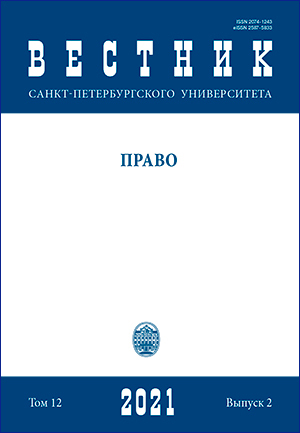Important issues in select European Union countries’ criminal environmental law in compliance with Directive 2008/99/EC
DOI:
https://doi.org/10.21638/spbu14.2021.207Аннотация
This article analyzes issues in criminal environmental law in Poland, the Czech Republic and Germany, which implemented the provisions of the European Commission Directive 2008/99/EC. The provisions of this directive changed the scope of protection of environmental resources in these countries’ penal codes to varying extents. These three countries have been relatively successful in comprehensively implementing criminal directive provisions. This included changes in the special protection of Natura 2000 sites and ozone depleting substances. Legal systems are generally based on prevention and risk assessment, and the basic conditions of criminal responsibility for environmental crimes include “significant damage, causing damage to the health of another or animals and plants, damage to other property and also water, air, soil and environmental components which have significant value”. Additional aspects include environmental damage over larger areas and restoration costs. However, the greatest current problem is the vague definition of conditions of criminal responsibility, which makes it difficult to enforce legislation. The following postulates de lege ferenda were formulated: clarify the premises for offenses against the environment, specify the costs of remedying environmental damage, define critical emission standards for environmental crime, as well as specify activities in protected areas that threaten objects. This article emphasizes that an increased and better definition of the conditions of criminal responsibility for environmental crimes enacted by EU countries may contribute to more effective enforcement of infringements of environmental protection law.
Ключевые слова:
criminal environmental law, implementation of provisions, system of national law, environmental resources, legally protected areas, crimes against environment, conditions of criminal responsibility
Скачивания
Библиографические ссылки
Загрузки
Опубликован
Как цитировать
Выпуск
Раздел
Лицензия
Статьи журнала «Вестник Санкт-Петербургского университета. Право» находятся в открытом доступе и распространяются в соответствии с условиями Лицензионного Договора с Санкт-Петербургским государственным университетом, который бесплатно предоставляет авторам неограниченное распространение и самостоятельное архивирование.






